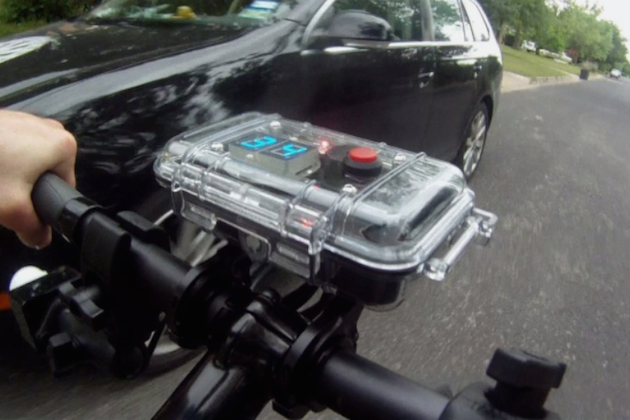Texas police department implements distance measuring radar device to catch close passers
The device will make sure drivers are keeping at least three feet away when passing cyclists

The latest race content, interviews, features, reviews and expert buying guides, direct to your inbox!
You are now subscribed
Your newsletter sign-up was successful
The Houston, Texas Police Department has launched a new enforcement campaign using a C3FT device on their police bicycles to help protect local cyclists.
Developed and engineered by the Austin, Texas based Codaxus LLC, the new device will allow cycling officers the ability to make sure vehicles are keeping the minimum three-feet distance when passing a cyclist.
>>> Every police force should have one of these cycling ‘close pass’ mats to educate drivers
Houston Mayor Sylvester Turner and Police Chief Art Acevedo announced the use of the device as part of the city’s campaign to increase protection of cyclists on the road.
Enforcement of the 2013 law passed by the City Council called the Safe Passing/Vulnerable Road User Ordinance should be easier with the new technology.
The code requires a minimum three-foot distance between the passing vehicle and cyclist as well as a minimum six-foot distance for trucks passing cyclists.
“We will be writing tickets,” Chief Acevedo said to Houston Public Media. “And hopefully, get people to voluntarily comply with the law.”
The latest race content, interviews, features, reviews and expert buying guides, direct to your inbox!
The penalty for passing to closely will not exceed $500.
Mounting directly to the bike’s handlebars, the $1,400 C3FT is designed to detect, capture and displaying the proximity of passing vehicles.
“It’s basically a radar…that actually measures the distance between the cyclist and a passing vehicle,” Acevedo said when describing the device, “We’ve worked out all the bugs. It’s ready to go and it’s certified for use in court.”
The C3FT uses an ultrasonic detector attached to an adjustable arm in order to measure the passing distances. A buzzer, numerical display and LED lights alert the rider when a passing vehicle reaches the three or six foot distance threshold.
The timing of the announcement coincides with a study being conducted by the local Rice University’s Kinder Institute for Urban Research, interested in understanding “close calls” for cyclists in Houston by having volunteers record such experiences.
The aim of the study is to further understand the factors that encourage or discourage community members from cycling around the greater Houston area.